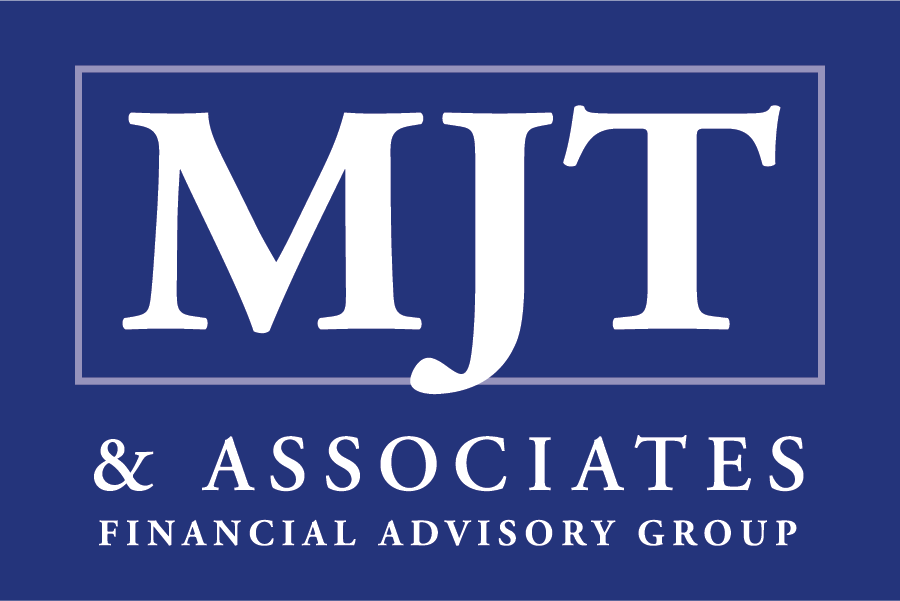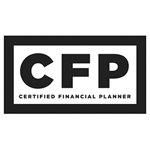As our financial advisor, how do you get paid?
This answer can vary from advisor to advisor; however, there are three general ways financial advisors get paid.
- Commissions: Advisors and Insurance Agents who sell a product to you get paid a commission by the company they represent. In the investment world, these tend to be front-loaded mutual funds, insurance products, or annuities.
- Fee-Based: An advisor can have and be both a commission and a Fee-Only individual. They may sell you a life insurance product and then also manage your investments for an Asset Under Management fee
- Fee-Only: Advisors charge a fee directly to you or your account. The fees are typically in the form of a retainer/subscription fee, a disclosed planning fee, or an Assets Under Management fee.
At MJT & Associates, we are Fee-Only and charge either a planning fee, a planning fee and an AUM fee, or just an AUM fee. In my opinion and knowledge, all three models can and do work with excellent advisors and a few bad ones in each model. I believe the key isn’t how an advisor charges but, as a client, ensuring you understand how your advisor is getting paid and whether it fits your needs and situation. Knowledge provides clarity.
What is the “total cost” of your advisor-client platform?
This is one of my most asked questions; it should be a top one for you. If I charge an asset under management fee of 1%, and Frank down the street only charges 0.75%, whose investment fee is more? Almost every person answered mine because 1.0% is more than 0.75%. But that’s not the only cost of investing. Your Total Investment Fee is the advisor’s fee + sponsor fee + investment/portfolio fee. If my portfolio fee is 0.35% and my advisor fee is 1%, my total investment fee is 1.35%. If Frank’s portfolio fee is 0.80%, Frank’s total investment fee is 1.55%—details and digging beyond the surface matter.
Are you a Fiduciary, and what does that mean to you?
When I entered this industry in 2000, my manager told me a few things that still stick with me today. One of them is that if you treat everyone as you would your loving grandmother, you will be fine. A fiduciary is defined as an individual who is ethically bound to act in another person’s best interest. Am I one – Yes. Do I think the word and meaning have become saturated in today’s world – a little. I didn’t need a rule to be a fiduciary to my clients – I had been using the grandma rule.
What is your communication policy- i.e., when do you return calls or emails?
Ask your financial advisor what their typical communication schedule is. Do they have annual meetings, semi-annual meetings, or quarterly? Do they send out communication and newsletters on a monthly or quarterly basis? How fast do they try to return emails or phone calls? Our goal is to meet or talk with our clients at a minimum on an annual basis. We scheduled our meetings and time frames based on our client's needs and preferences. We send out systematic and timely emails to remind our clients of events and timeframes or comment on a recent market, economic, or other event that may impact your financial plan. Our goal is to return all emails and phone calls within 48 hours.
Do you have any credentials? If so, what are they, and what do they mean?
Credentials are great, as they show an advisor has taken a stake in continuing their education, but those with many may not be the best “practicing” advisors, while those with none may be the best advisors in the world. Here are my credentials
- Certified Financial Planner professional (CFP®) focuses on holistic planning and providing clients with financial planning advice and helping them make informed decisions
- Certified Divorce Financial Analyst professional (CDFA®) is to assist the client and his/her lawyer in understanding how the financial decisions he/she makes today will impact the client's financial future during a divorce.
- Chartered Special Needs Consultant professional (ChSNC®) signifies expertise in financial planning for special needs individuals, their families, and caregivers.
- Accredited Estate Planner professional (AEP®) is an individual who specializes in estate planning services on a collaboration approach.
How do I “check on” and look up an advisor for any past issues?
Things happen in life, even to advisors, but you may want to proceed with caution if there is a pattern. You can look advisors up in a couple of ways. FINRA’s Broker Check is a way to look up advisors with a broker-dealer, while Check Out Your INVESTMENT PROFESSIONAL can look up Investment Advisors and Registered Investment Advisors firms. Here is the MJT & Associates link, and all advisors should have a way to access their information on their websites.
If you were managing my portfolio and I retired into a bear market, what about your financial planning and investment planning would ensure that I didn't run out of money in retirement?
We think of planning in many ways – a triangle, your best plan where the math and physics meet your goals and values, a four-layer cake where we constantly review your portfolio's risk-adjusted growth, supplemental income needs, tax planning, and wealth transfer wishes. We also believe the best investment for your resource is to match the goal of that resource with an appropriate investment by answering when we need it, how much we need from it, and how long we need it. We use a Bucket Theory for your investments, looking at what you need in the next 2 years, what you need in 2-5 years, and what can be left in the 5+ year bucket. We allocate and rebalance to your changing needs and transitions as we meet and talk throughout our review and financial planning process.
In your experience, what’s the most common mistake people make with their finances?
The most common mistake we see is waiting too long to create a financial plan — often believing they need to reach some “imaginary number” before seeking guidance or working with a financial advisor. In reality, there is no perfect amount required to begin planning.
Starting early provides significantly more flexibility, more strategic options, and greater confidence over time. A financial plan is not just about managing money — it’s about preparing for life’s transitions, whether career changes, family milestones, or retirement. The sooner planning begins; the better positioned individuals are to make informed decisions and adapt as life evolves.
In short, early planning creates clarity, preparedness, and choices — all of which are far more valuable than waiting until you feel “ready.”
Why do you believe a financial plan should come before investment decisions?
Investment decisions should always be guided by purpose. The only way to determine how money should be invested is to first understand what that investment is meant to achieve. We help clients begin by answering three essential questions:
- When will I need this money?
- How long will I need it for?
- How much will I need?
A well-defined financial plan provides clarity around these resources and their intended use, which then informs the appropriate investment strategy, risk level, and allocation. Without this foundation, investment decisions are based on speculation rather than intention.
At MJT & Associates, we implement a Bucket of Resources approach to ensure each client’s plan, timeline, and goals are properly aligned with their investment asset allocation and overall strategy. This structure allows for smarter, more intentional decision-making and greater confidence throughout the financial planning process.
How do you ensure your clients fully understand your fees and how you’re compensated?
We prioritize complete transparency by clearly outlining our fees upfront and explaining exactly how we are compensated for the services and support we provide. There are no hidden changes or surprises. Clients see every dollar they pay and understand how those fees are applied, regardless of the payment method they choose. Our goal is to ensure full clarity, so clients feel informed, confident, and comfortable with the value they receive.
How do you stay involved and give back to your community?
My family and I are actively involved in supporting our community in several meaningful ways. We dedicate time and resources to the Special Needs community by participating in and supporting local events for our children, recognizing and giving back to paraprofessionals, and taking part in the Lake Minnetonka Polar Plunge to raise both funds and awareness for Special Olympics and Special Needs athletes. We also honor those who have served and sacrificed for our country by providing an annual holiday gift to residents of our local VA Home, showing appreciation and support for veterans in our community.










